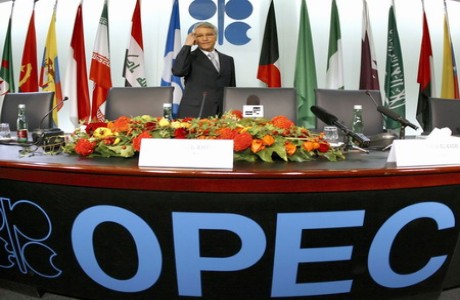Disagreement among Organisation of Petroleum Exporting Countries (OPEC) members, escalated at the weekend as Iran declared it would reject increase in production ceiling at the next meeting on September 9.
OPEC left its oil output target unchanged at its last meeting, a decision that sent crude prices shooting higher on global markets and exposed deep divisions in the cartel amid calls for a hike in quotas.
Saudi Arabian Oil Minister, Ali al-Naimi, speaking to reporters after the decision, said it was “one of the worst meetings we ever had.”
“We were not able to reach an agreement,” added Naimi, who confirmed that the Gulf nations of Saudi, Kuwait, Qatar, and the United Arab Emirates(UAE) had proposed an increase of 1.5 million barrels per day (mbpd).
“That means we are suggesting production of 30.3 mbpd,” he said, adding that Algeria, Angola, Venezuela, Iraq, Iran, and Libya had rejected such a move.
Iranian Oil Ministry caretaker, Mohammad Aliabadi, however, said at the weekend that the country took its decision because it is convinced that there is no need for quota increase.
“Considering the demand and supply situation in the oil market, Iran will reject any increase in OPEC output ceiling in the next meeting … OPEC has no intention to increase prices of crude,” Aliabadi stated.
OPEC meets on September 9 to review its supply policy. Iran heads the rotating Presidency of OPEC, which has already pledged to curb output by 4.2 million barrels per day (bpd), around 5 per cent of global supply, since September last year to match the sharpest fall in demand since 1981.
Fundamentals of supply and demand are still weak and most analysts agree the oil market rally to a high for this year of above $73 per barrel (pb) at the end of June is a result of cross-asset ebullience, which could fizzle out.
Prices have since dropped back below $70, although they have more than doubled from last December’s low of $32.40.
Traders had speculated that OPEC would boost production to help cool high oil prices and in turn revive flagging economic growth.
“Unfortunately we are unable to reach a consensus this time to reduce or raise our production,” OPEC Secretary General, Abdullah El-Badri, said after the meeting.
OPEC, which has a dozen member countries, kept its official output target at 24.84 million mbpd, where it has stood since January 2009.
However, it is unofficially pumping above this level to compensate for OPEC member Libya, whose oil supplies have been ravaged by violent unrest since February.
A Libyan representative also attended the meeting.
Saudi Arabia is the world’s biggest oil supplier and traditionally the most influential member of OPEC.
Following the latest decision, Brent oil prices shot up $1.62 to $118.40 pb in London trade and New York’s light sweet crude climbed $1.75 to $100.84.
The International Energy Agency (IEA) said it was “disappointed” by OPEC’s decision and urged producers to pump more anyway to avoid higher oil prices.
“We have noted with disappointment that OPEC members today were unable to agree on the need to make more oil available to the market,” said the Paris-based IEA, which represents the interests of industrialised nations.
Understanding that the output from OPEC does not always match the formally agreed quotas, the IEA added: “Of course what really matters is actual supply.”
The IEA urged “key producers to respond accordingly” and pump more oil into the market to meet rising seasonal demand.
“Otherwise, a further tightening in the market and potential increases in prices risk undermining economic recovery, which is in the interests neither of producers or consumers.”



